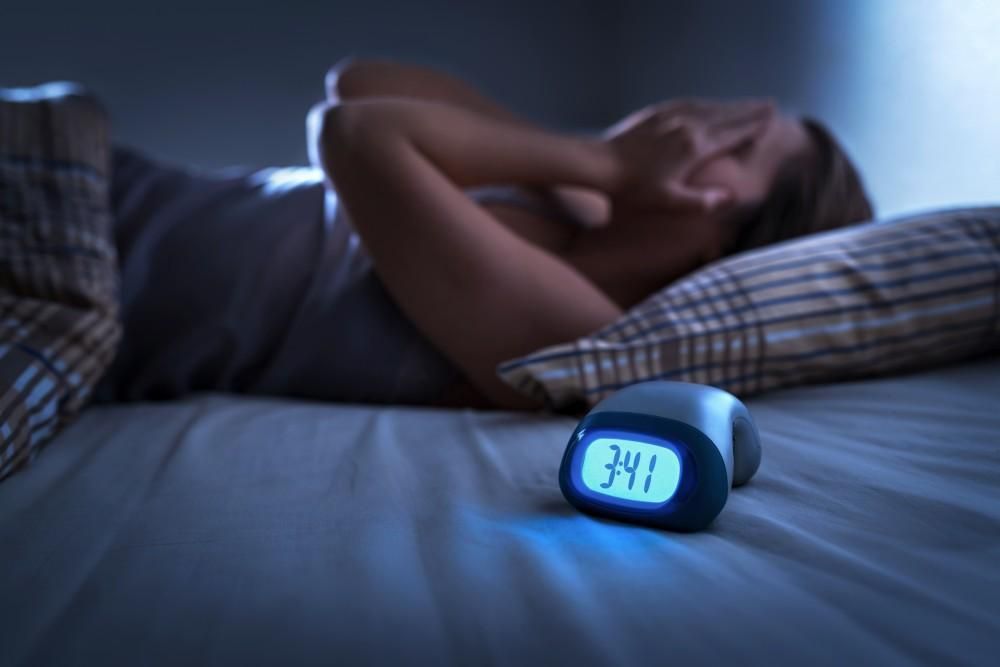Going to sleep and sleeping throughout the night isn’t as easy as you may think. Many people struggle to stay asleep and get the rest they need, and it leads to various health issues, including depression and anxiety.
Insomnia is an issue that happens when you can’t get the rest you need to function normally. It can be short-term or chronic, but it causes work, social, and family issues. The National Alliance on Mental Illness reports that one in three people have difficulty sleeping at least one night per week.
A significant issue with insomnia is mental health problems, which could cause the condition or be the result of sleep deprivation. If you’re tired of not resting, the Carolina Wellness Psychiatry team provides tips and tricks to get some sleep.
Our three mental health specialists, Dr. Allison Foroobar, Dr. Elizabeth Bullard, and Dr. Sarah Gilbert, offer various treatments and techniques for chronic insomnia.
What is chronic insomnia?
Chronic insomnia is a sleep disorder that causes difficulty sleeping several times a week for at least three months. Symptoms include trouble getting to sleep, staying asleep, or waking too early.
Both mental and physical health suffer when you’re living with chronic insomnia. You may have trouble staying awake during the day or performing everyday activities without proper sleep.
How insomnia affects mental health
Sleep is vital to every aspect of your health, including your mental wellness. Not getting the sleep you need night after night typically leads to changes in mood, which can lead to various mental health issues, including:
Depression
Not getting enough sleep may cause negative mood changes and depression, and increase your risk of suicide. Sleep is necessary to feel good and have energy, which is why depression often appears after long periods without significant sleep.
PTSD
Although it’s usually recurring nightmares that signal the development of PTSD, the sleep deprivation that ensues sometimes worsens its symptoms. People with severe PTSD may be fearful of falling asleep because of the nightmares.
Anxiety
Living with anxiety means your mind has various irrational thoughts that lead to fear, including worrying about not getting sleep. The more your mind races or wanders, the less likely you’ll get a good night’s rest. People with OCD have an especially difficult time with insomnia.
Bipolar disorder
Without sleep, the symptoms of bipolar disorder often become worse. Your mind needs time to rest, but bipolar disorder usually worsens when your mind doesn’t have time to reset, causing worsening manic or depressive episodes.
Can mental health issues cause insomnia?
Just as insomnia can lead to mental health disorders, the opposite is also true. People living with conditions like anxiety and depression are more likely to have trouble sleeping, sometimes resulting in chronic insomnia.
Many people living with mental health problems have insomnia at some point, but why? Well, anxiety makes it hard to shut off your overactive thoughts. At the same time, depression can lead to insomnia due to an imbalance in neurotransmitters that deal with sleep.
It may be hard for our team to determine which issue began first; it may have been insomnia that led to mental health issues or the other way around. Either way, treatment is necessary to get the sleep you need and help control symptoms of mental health problems.
Treatments that help you finally get to sleep
There’s excellent news when it comes to insomnia and your mental health. There are many lifestyle changes and treatments that help with both problems. If you’re not getting the sleep you need and it’s affecting your daily life, reaching out to our team for help is essential.
At your appointment, our providers home in on your symptoms and discuss how you’ve been feeling. After a thorough evaluation, they develop a personalized plan for your needs.
Insomnia and mental health treatments often coincide and may include any of the following therapies:
- Psychotherapy
- Medications
- Managing underlying conditions
- Treating mental health disorders
- Creating good sleep hygiene habits
- Breathing exercises
- Progressive muscle relaxation
- Biofeedback therapy
We also discuss healthy sleep strategies to get your body into a regular sleep cycle. These strategies include being in bed at a regular time, avoiding naps during the day, and avoiding screen time before bed. You should also avoid TV and eating before bed for a restful night’s sleep.
Call Carolina Wellness Psychiatry today to schedule an appointment for insomnia treatment, or use our online booking feature to request a consultation with our team.




